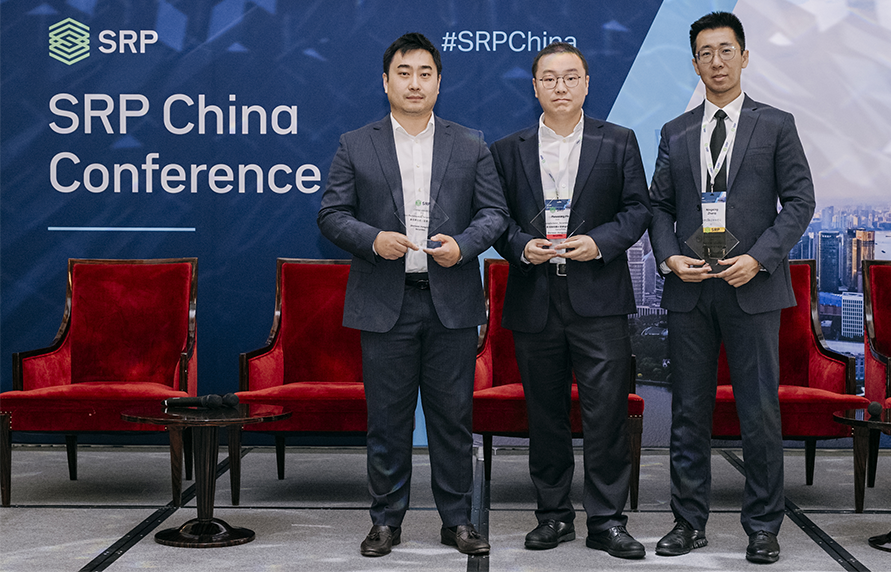The securities house won “Best Manufacturer, Securities House,” “Best Performance, Securities House,” and “Best ESG Solution” at the 2025 SRP China Awards.
Shenwan Hongyuan Securities (SWHY) asserted its position in the Chinese market in 2024 after ramping up its structured note business with thematic offerings.
As the market environment evolves in 2025, we've observed a significant recovery in clients' confidence, with risk appetite gradually returning to a normal, slightly positive level - Yihui Chen
“We focused on [issuing] products linked to the global asset allocation strategy index, gold ETF, Hang Seng TECH ETF, dividend ETF and Chinese central state-owned enterprise innovation-driven ETF, allowing us to capture market trends and industry opportunities,” said Yihui Chen (pictured), head of single-name option trading, financial innovation department at the securities house.
“We launched our first product linked to the CSI Belt and Road Initiative ETF,” Chen added.
Capital protected autocallables tracking broad-based indices like the CSI 1000 were among the products that investors in the wealth management segment favoured, according to Chen.
The Shenzhen-listed Academy of Environmental Planning and Design, Co. Nanjing University was one of the buy-sides that transacted the SWHY structure raising a notional of CNY17m (US$2.37m) in July 2024, disclosure from the public firm shows.
In 2024, SWHY’s issuance of beneficiary certificates, the equivalent of structured notes in other markets, recorded a notional surge of 170% year-on-year across 2,000 products. The majority of which were principal-protected notes, SRP understands, following the regulatory tightening on non-principal-protected products last year.
The securities house also extended its customisation business line to attract more listed companies and corporate clients, with the traded notional involving customised products increasing by 141% year-on-year last year.
The Shenwan Hongyuan team at the SRP China 2025 Awards ceremony in Shanghai on 17 June
The issuer has five product types shelves based on “stable investment that tends to provide high guaranteed returns; high flexibility that tends to provide higher participation rate with specific views on underlyings; autocall that is adaptable to volatile markets; risk hedging and global major asset allocation that tracks self-developed strategy indices or proprietary indices that offer overseas assets investment exposure”, noted Chen.
The fourth quarter of last year was critical as Chinese investors’ sentiment rebounded following monetary stimulus and liquidity-boosting measures announced from Beijing in late September – and that rebound was also reflected in numbers at SWHY.
The house’s over-the-counter (OTC) derivatives notional jumped over 40% from October to December last year. On a 2024 full-year basis, it executed over 10,000 trades of OTC options and total return swaps, respectively.
Chen highlighted that the house's equity- and equity index-linked OTC options business “has maintained a healthy growth” this year, while its cross-border business also continued to “enhance the firm's competitiveness, achieving growth in both revenue and scale-wise”.
The latest development came after the house received its license as the tier-1 OTC option dealer in 2021 and was granted a pilot scheme license for cross-border business operation in 2020. Last November, SWHY also became one of the 14 securities houses that obtained the pilot nod from Chinese financial authorities to participate in the cross-boundary Wealth Management Connect.
“As the market environment evolves in 2025, we've observed a significant recovery in clients' confidence, with risk appetite gradually returning to a normal, slightly positive level and higher willingness to trade or invest,” Chen said, adding that the stabilised regulatory environment can be beneficial for business development.
The issuer is seeking to continue to bolster its offering, particularly medium- and higher-risk products such as customised autocallables and so-called “fixed income plus”, a type of fixed income strategy in China that includes small amounts of shares to enhance returns, he added.
ESG in focus
SWHY also scaled its green-focused over-the-counter derivative business in 2024, with options tracking green finance-related stock underlyings recording a notional of over CNY5 billion (US$697m) across 500 trades.
ESG-focused underlying themes in 2024 covered photovoltaic, lithium battery, energy, electricity, energy storage, and new energy vehicles industries, according to Naiwei Liu (right), head of corporate solutions, financial innovation department at SWHY.
The securities house also started market making for industrial silicon and lithium carbonate options to provide risk hedging for the green industry, Liu noted.
“The prices of polysilicon, industrial silicon and lithium carbonate have fluctuated sharply for years, which has had a significant adverse impact on those companies related to the lithium battery and photovoltaic industry chain in terms of operation of product, sales, and storage,” she said. “The use of polysilicon, industrial silicon and lithium carbonate futures and options will effectively alleviate the above problems.”
The latest green product development also came a year after the company's debut of a green bond-focused OTC option that tracked a carbon-neutral green financial bond issued by the China Development Bank, with a notional of CNY2 billion.
Meanwhile, SWHY also started an initiative involving structured notes with a rural revitalisation public welfare donation last year, Liu highlighted. Investors who subscribed to such products authorised the house to donate 10%-20% of the proceeds to the China Rural Development Foundation if the products achieve high returns.
The donation led to a total of 4,173 care packages that comprise art kits and science and technology kits being delivered to 2,458 elementary students in Baiyin, Gansu, in north-central China, according to Liu.
The demands on ESG-related trades came on the backdrop of more corporates and listed companies’ adoption of ESG as a key indicator for sustainable development, on the back of the government's policy support, Liu noted.
“From the investment’s perspective, more companies are realising that strengthening ESG management can attract more long-term capital, enhance brand reputation, improve international competitiveness, and achieve the goal of benchmarking against elite-type global corporate management,” she said.
Still, Liu acknowledged the hurdle of the relatively low awareness of ESG across the board, especially among small and medium-sized enterprises that “face challenges in applying ESG due to rising operating costs and declining product efficiency.”
“Addressing these issues will significantly impact the adoption and development of ESG in China,” she concluded.
Do you have a confidential story, tip or comment you’d like to share? Write to jocelyn.yang@derivia.com


